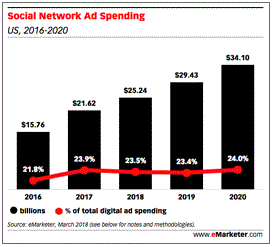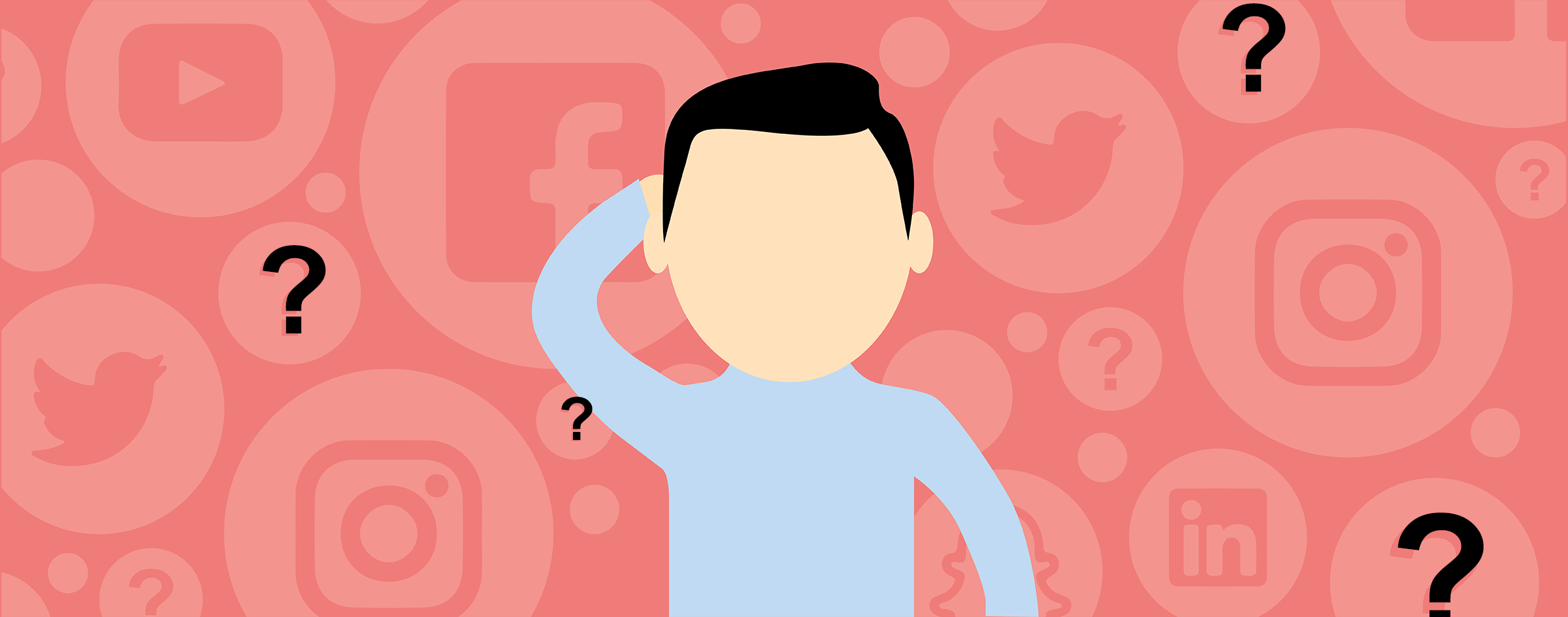Despite the recent pressure on Facebook to tighten the reins on improper use of its user data, marketers won't likely abandon social media advertising anytime soon. Afterall, when used properly, Facebook and other social media networks hold immense potential in terms of segmentation and targeting.
Still, misunderstandings abound. In fact, the confusion can turn brands off of social networks altogether. And that’s unfortunate—since paid social programs yield exciting success for brands of all shapes and sizes. So we’re highlighting—and dispelling—five social media advertising myths that could be stunting your success (plus a fun bonus myth that’s become a bona fide urban legend). Read on to learn more.

1. Organic is best
Organic Facebook reach has been on a downward trend for years, and with recent changes to the algorithm, will remain low. Other social media networks have followed suit. In fact, it’s likely that the percentage of your Facebook followers that see your organic posts is in the single digits. Still, some naysayers still cling to the belief that organic content is more engaging and genuine—and that running ads will somehow mar this reputation of authenticity. To the contrary, we’ve seen real, enthusiastic engagement result from our clients’ paid social media efforts; and it’s far higher in volume and impact than content that doesn’t get a paid push.
2. Social media doesn’t affect/work with my other marketing programs
Keeping social media efforts (paid or organic) siloed from other more traditional marketing programs is a huge missed opportunity. The companies we work with benefit from holistic planning in which lead generation and nurturing, content and other paid digital programs integrate with and influence paid social media strategies. With several of our clients, for example, we promote high-value gated content on social media to capture leads. Segmented, automated email streams nurture those leads with related content; in parallel, we remarket that content to the same prospect via promoted social posts. The double-whammy delivers higher-than-average engagement (CTRs, open rates and conversions).
3. The intern who tweets for us can run our paid social programs
An eager, clever social media manager with an instinct for content that drives engagement is worth his weight in gold—but that doesn’t mean he should be running your paid social campaigns. Paid digital media management is a complex, nuanced and specialized discipline—and social media advertising is no exception. In addition to skilled, knowledgeable campaign managers, the strategic director of your paid social efforts should have a keen eye for how it fits into the big picture.
4. Facebook advertising won’t work for b2b brands
Industry stats show that 84% of VPs and CEOs turn to social media to inform purchasing decisions, and it’s not just LinkedIn. Facebook has become a powerful tool for driving business. Plus, it’s not uncommon to find valuable product and technical videos on popular social media outlets like YouTube, Instagram, Twitter and others.
5. Social media can’t drive leads
While a large part of social media advertising is about engaging your customers and prospects with valuable, educational and/or entertaining (read: not overly promotional) content, there is room for messages that generate leads and drive sales. New ad formats enable fast lead capture (available on Facebook and LinkedIn), so you can solicit easy newsletter or gated content opt-ins; Facebook Canvas ads are an engaging platform for product launches; and Facebook chatbots can help push prospects down the funnel with product recommendations and guidance. Those are just a few of many examples of paid social that addresses lower-funnel objectives.
Bonus myth: Facebook is literally listening to me
OK, enough with the business—this is a fun one! The conspiracy theory that Facebook and Instagram listen to your conversations through your phone’s microphone (for the purpose of video audio recording) has some adamant believers. Just ask your mom’s friend’s daughter’s boyfriend—who swears that mere minutes after he mentioned a craving for P.F. Chang’s, got an Instagram ad for the restaurant. Could it be true??
No. Facebook is not listening to your conversations. But the social network is watching you … albeit indirectly. As Wired puts it: “The harsh truth is that Facebook doesn’t need to perform technical miracles to target you via weak signals. It’s got much better ways to do so already … Remember, Facebook can find you on whatever device you’ve ever checked Facebook on. It can exploit everything that retailers know about you, and even sometimes track your in-store, cash-only purchases; that loyalty discount card is tied to a phone number or email for a reason.” So there you have it.
Still wondering if paid social media is right for your brand—or how to use it more effectively? Get in touch with us.


